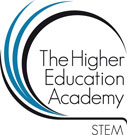| The HEA STEM conference entitled “Enhancing the STEM Student Journey” will take place at the University of Edinburgh on 30 April – 1 May 2014.
Presentations are accepted in the following formats;
- Full paper – a maximum of 6 pages including references & eligible for publication afterwards,
- Oral presentations – only an abstract is required and should not be more than 200-250 words,
- Workshops – only an abstract is required and should not be more than 200-250 words,
- Posters- only an abstract is required and should not be more than 200-250 words, we have three prizes available for Undergraduates, Postgraduates and Staff.
Topics could include but are not limited to:
- Learning, Teaching and Assessment in STEM disciplines
- Enhancing the employability skills of STEM graduates
- Innovative STEM education
- Transitions within the student experience
- Students as partners
- Laboratory and technical skills
- Mathematical and Statistical skills in the disciplines
- Internationalising STEM education
Important dates/deadlines:
- 22 Nov 2013 deadline for the submission of full papers, abstracts for oral presentations and workshops
- 10 Jan 2014 notification of acceptance of full papers, abstracts for oral presentations and workshops
- 24 Jan 2014 deadline for submissions for poster competitions
- 21 Feb 2014 deadline for the submission of camera-ready copies of full papers (undergraduates, postgraduates, support staff/technicians and lecturers)
- 14 Feb 2014 notification of acceptance of poster abstracts
- 14 Mar 2014 at least one presenting author to be registered.
Presentation Format: Pecha Kucha
This year, we’re taking a new approach to presentations, using a Pecha Kucha (literally translated: chitchat) presentation format to allow more time for interaction and discussions.
Submissions should be made via EasyChair
Poster Competition
Posters (A1 841 x 594 mm) will be displayed throughout the conference. There will be prizes for the best posters from Undergraduates, Postgraduates and Staff – good luck!
STEM Subjects
| BioSciences |
Biology, Botany, Zoology, Genetics, Microbiology, Molecular Biology, Biophysics and Biochemistry, Others in Biological Sciences, Agriculture, Forestry & Arboriculture Food and Beverage studies, Agricultural Sciences |
| Built Environment |
Architecture, Building, Landscape Design, Planning (Urban, Rural and Regional), Urban Design, Others in Architecture, Building and Planning. |
| Computing |
Computer Science, Information Systems, Software Engineering, Artificial Intelligence, Health Informatics, Games, Computer Generated Visual & Audio Effects, Others in Computer Science |
| Engineering and Materials |
General Engineering, Mechanical, Production and Manufacturing Engineering, Aerospace Engineering, Naval Architecture, Electronic and Electrical Engineering, Civil Engineering, Chemical, Process and Energy Engineering, Others in Engineering, Materials and Minerals Technology, Maritime Technology, Others in Technology, |
| GEES |
Geology, Physical Geographical Sciences, Science of Aquatic & Terrestrial Environments, Human and Social Geography, Development Studies, Environmental Science. |
| MSOR |
Mathematics, Operational Research, Statistics, Mathematics and Statistics Support, Others in Mathematical Sciences |
| Physical Sciences |
Chemistry, Physics, Forensic and Archaeological Science, Astronomy, Others in Physical Sciences |
| Psychology |
Psychology, Counselling and Psychotherapy |
|
 Our colleagues at Higher Education Academy (HEA) STEM will be holding their annual conference next year at the University of Edinburgh on 30 April – 1 May 2014.
Our colleagues at Higher Education Academy (HEA) STEM will be holding their annual conference next year at the University of Edinburgh on 30 April – 1 May 2014.